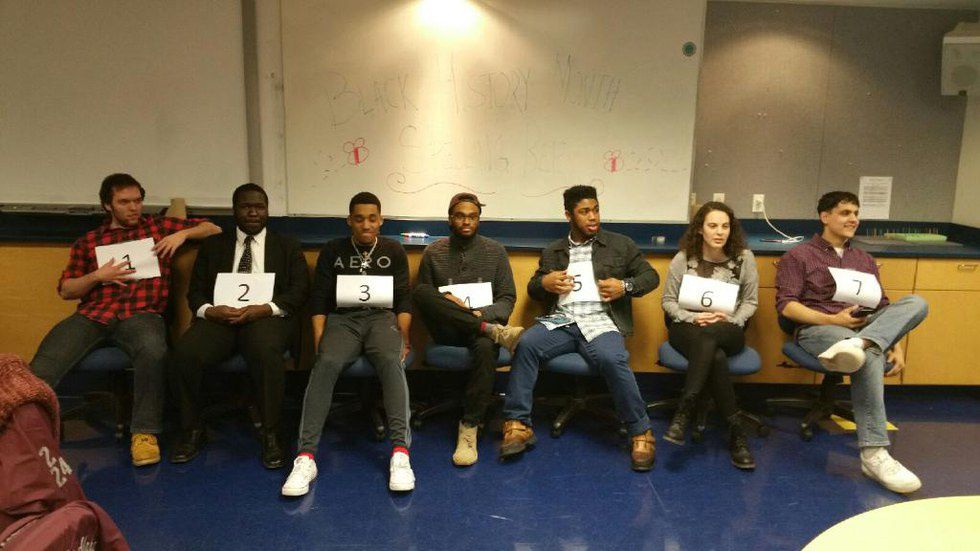My medium-sized college in New Jersey, Rider University, just recently became the proud host to a “student association that promotes a positive image of black males… through innovative strategies that develop effective leaders.” I was initially brought into the fold by two of my close friends who started the group while the organization was still in the process of being formalized, and so I started to hear more and more about the group. What really caught my attention was the clearly stated emphasis on the role of black men and the distinction this drew between Black Men Unified and the already existing Black Students Union. Why the emphasis on men as opposed to black people? Does this group put black men over black women in terms of prioritization? What does this mean to a white dude?
Me (far left, holding 1) at a Black Men Unified co-sponsored Black History Month spelling bee.
Thankfully, these questions were not simply tolerated at Black Men Unified meetings but were genuinely encouraged. Black Men Unified is not an organization that prioritizes black men over black women, or even black people over white people. The student association looks to solidify the voice of black people, specifically black men, as leaders and to mold a better Rider University out of that foundation. As a white dude there are countless role models and leaders I can look to on campus including professors and other students. At Black Men Unified we talk about what the comparison can be drawn to black students’ experience. There are hardly any black faculty and administrators to look to as role models and leaders here and the same is true for many medium-sized, rural schools. This can make a distinct impact on students’ experience—black and white.
So as a white dude I see no valid reason not to be in Black Men Unified. Aside from the fact that the meetings are though-provoking and cause me to look at college life outside of my own experience, I can also now better understand what it means to be a black person in higher education. Obviously everyone is going to have a different experience at college but everyone regardless of race should be able to look to leaders in the community to be that back bone and example that we all so desperately need at times. College makes students question our own abilities, commitments, priorities, and our most fundamental values. Diversity in leadership and representation is one solid way to include people of color in the equation and to help them answer these questions and all others that can and will arise. It is my hope that universities will become more diversified and equal in opportunity and experience in the future and it is hard to think that they won’t at least in the United States. However I think that a lot of the brunt work will be done by student organizations such as Black Men Unified and that progress can and will be made, starting with medium-sized rural schools like Rider University.






















